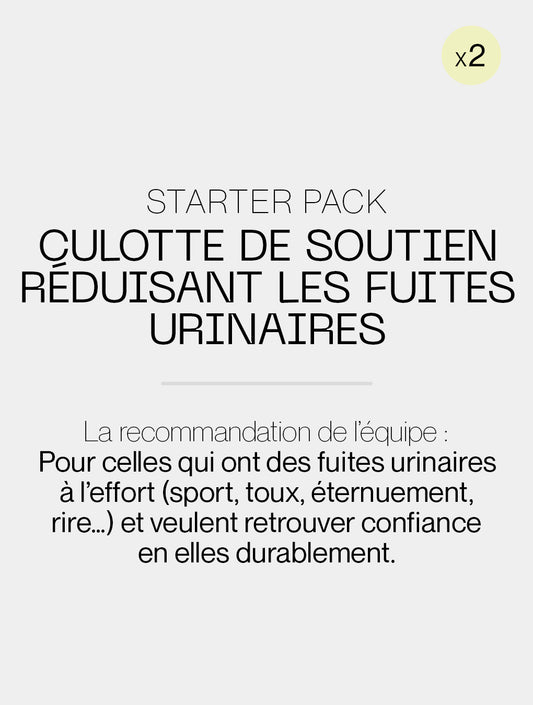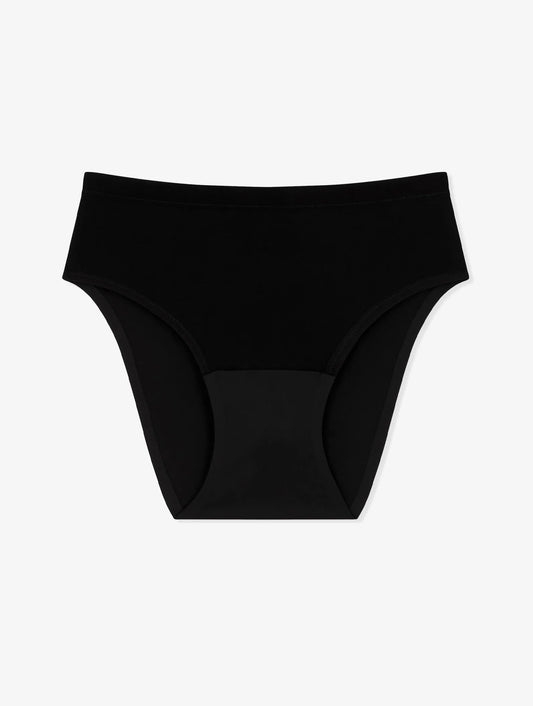Enuresis in adults: I wet the bed
Nocturnal enuresis, commonly known as bedwetting, is not just reserved for children. It can also affect adults, often leading to feelings of embarrassment and shame. This condition, marked by uncontrollable urination during the night, can be triggered by various factors such as stress, depression or an unbalanced diet. Although it is not a disease, but a symptom, solutions and treatments exist to manage this urinary incontinence.

Understanding bedwetting in adults
Nocturnal enuresis in adults is often misunderstood, but it is very real. It manifests itself by involuntary urination during sleep , without the individual being aware of it. While it is common in children up to the age of 5, it can also affect adults, affecting between 1 to 3% of the population.
This condition can be particularly disruptive, affecting sleep quality, self-esteem and daily life. It is essential to understand that bedwetting is not a choice or a mark of laziness, but the result of a variety of factors and possible causes.
Anti-urinary leak pants to give you peace of mind at night?
To find peace of mind during the night , anti-urinary leak pants can be an effective solution. Thanks to their absorbent technology, like menstrual panties , they can stay dry for several hours, even in the case of moderate to severe urinary leakage.
Support panties to help with urinary leakage are even reusable and washable, offering a more ecological and economical alternative.
What is nocturnal urinary incontinence?
Nocturnal urinary incontinence, also known as nocturnal enuresis, is defined as an involuntary loss of urine occurring during sleep. It is a common phenomenon, particularly among older people , and is characterized by uncontrolled urination that can vary from moderate to large volume.
It is important to note that this condition is not a disease in itself, but rather a symptom of another pathology or a transient or lasting dysfunction. Among the factors favoring the appearance of this incontinence, we can cite physiological causes, such as a urinary infection, enlarged prostate, relaxation of the bladder muscle or even hormonal changes linked to age.
Causes of enuresis in adults
Physiological factors and enuresis
Enuresis in adults can be linked to various physiological factors. For example, certain medical conditions like diabetes , a urinary tract infection , or an overactive bladder can cause this disorder.
It has also been observed that sleep apnea can be linked to enuresis, with around 7% of people with this sleep disorder wetting the bed. Additionally, a hormonal imbalance affecting urine production can also cause enuresis.
It is therefore crucial to look for the underlying cause to determine the most appropriate treatment. A medical consultation is necessary to identify these physiological factors and offer appropriate incontinence treatment .
Role of stress and depression in enuresis
Beyond physiological factors, stress and depression play a significant role in the onset of enuresis in adults. Indeed, high levels of stress or chronic depression can cause disruptions in the nervous system that controls the bladder, leading to nighttime incontinence. Emotional and psychological disorders can thus cause or aggravate this problem.
Furthermore, bedwetting itself can lead to a cycle of stress and anxiety, creating a vicious circle that is difficult to break. This is why comprehensive care, integrating stress management and particular attention to the emotional state of the individual, is often necessary to effectively treat enuresis. Consultation with a specialist is therefore recommended for people suffering from enuresis and showing signs of stress or depression.
Psychological causes of adult enuresis
Among the psychological causes of adult enuresis, we find trauma and significant stressful events . Indeed, an emotional shock, such as a death or divorce, can trigger secondary enuresis, that is to say occurring after a period of continence.
Additionally, chronic psychological disorders like anxiety and depression can also cause this disorder . These conditions can disrupt the functioning of the nervous system, thereby affecting bladder control.
Some also consider a symbolic meaning to adult enuresis, associating it with a need to release negative emotions and concerns.
It is essential to note that psychological support can be a crucial component of treating enuresis in adults, particularly when there is an emotional or psychological component.
Manifestations of enuresis in men and women
Enuresis in women: particularities and causes
In women, enuresis can occur at different stages of life, particularly due to hormonal changes such as menopause or pregnancy. Obesity , smoking and hypertension are also specific risk factors.
Bedwetting can also be a symptom of underlying medical conditions like type 2 diabetes . Psychosomatic causes, such as relationship problems, emotional difficulties or family tensions, can also play a role. A medical consultation is necessary to identify these factors and offer appropriate treatment.
Enuresis in men: symptoms and specific causes
In men, the symptoms of enuresis are similar to those observed in women. They are mainly characterized by involuntary nocturnal incontinence . However, there are some human-specific causes that can cause this disorder.
Benign prostatic hypertrophy, which results in a non-cancerous increase in the size of the prostate , can indeed hinder urinary flow and cause enuresis. In addition, certain neurological diseases or mobility disorders can also be the cause of this symptom.
It is therefore crucial, in the presence of such symptoms, to consult a health professional for an accurate diagnosis and appropriate treatment.
Loss of urine during sleep: when should you worry?
Nocturnal enuresis can be a cause for concern when its frequency increases or it significantly disrupts your quality of life. If you notice regular nocturnal urinary leakage despite appropriate lifestyle measures, it may be necessary to consult a healthcare professional.
Red flags may indicate an underlying pathological cause, such as blood in the urine, pain when urinating, excessive thirst, or unexplained weight loss.
Likewise, if enuresis is accompanied by symptoms of stress, anxiety or depression, a consultation may be necessary. It is vital not to ignore these signals and seek appropriate medical help.
How to stop bedwetting?

Medical treatments for enuresis in adults
There are various medication approaches to treating enuresis in adults. Among them, the use of anticholinergics and vasopressin . Anticholinergics limit bladder contractions, thereby reducing urinary leakage. Vasopressin, a hormone naturally produced by the body, limits urine production during the night.
Other medications, such as oxybutynin and desmopressin , may also be prescribed. Oxybutynin helps relax the bladder muscle, while desmopressin reduces urine production.
Finally, antidepressants can sometimes be used, but only in adults. They help regulate mood and can help control bedwetting symptoms in people suffering from depression or stress.
These drug treatments, often associated with behavioral techniques or perineal rehabilitation , make it possible to better manage nocturnal enuresis. However, it is essential to consult a doctor before starting any treatment.
Natural solutions to control bedwetting
It is possible to use natural remedies to control bedwetting.
The use of medicinal plants can in particular prove beneficial. For example, sweet clover, known for its antispasmodic and calming properties, can contribute to more peaceful sleep and a reduction in anxiety, often associated with bedwetting.
Other plants such as yarrow or escholtzia are also recommended for their beneficial effects on the urinary system.
There are also relaxation techniques such as meditation, yoga or deep breathing that can help reduce stress, often linked to bedwetting.
Finally, the “stop-pee” alarm is a simple natural solution that can be effective for some people. This system sounds an alarm when the first drop of urine is detected, allowing the person to wake up and go to the toilet.
However, it is recommended to consult a healthcare professional before trying these solutions, to ensure that they are suitable for your situation.
Using incontinence pants to manage bedwetting
Incontinence pants are a valuable aid in managing bedwetting . They provide daily urinary protection and are simple to put on and take off, allowing people suffering from incontinence to maintain their independence.
- They are discreet and can be worn under normal clothing.
- Designed to absorb liquids in seconds and retain odors, they offer optimal protection.
- Incontinence briefs are available in different sizes and absorption levels, to suit all needs.
For people with reduced mobility, all-in-one underwear may be a suitable solution. Comfortable and secure, these protections are ideal for managing sudden enuresis.
Waterproof, machine-washable panties are an eco-friendly and economical option for mild to severe incontinence problems. And for those looking for a softer, more versatile alternative, it’s also possible to opt for a period panty for the night, which offers excellent absorption while remaining comfortable and discreet.
The role of dreams in adult enuresis
In some cases, adult enuresis may be linked to specific dreams, called urination dreams. These are dreams where the individual sees themselves urinating in a safe environment, which can trigger actual urination during sleep. This phenomenon is associated with confusion between the dream world and reality, leading to accidental relaxation of the bladder.
It is also interesting to note that dreams may play a role in memory consolidation and reorganization during sleep . So, nocturnal enuresis can occur accidentally when a person dreams that he is in the toilet.
Furthermore, according to Freud, the dream is a reflection of our unconscious desires and, in adults, the desire represented in the dream is necessarily infantile. This theory may help explain why some adults continue to wet the bed, especially when they are dreaming.
Living with enuresis: tips and tricks
To make daily life with enuresis easier, behavioral adjustments can be beneficial.
- Choose a diet rich in fiber which helps regulate intestinal transit, which can influence the functioning of the bladder.
- It is advisable to adopt good urination habits : urinate regularly during the day and reduce your fluid intake in the evening, from 6 p.m.
- Practice regular physical activity , this stimulates transit and strengthens the pelvic muscles.
- The use of absorbent protection such as mattress protectors or incontinence pants can provide additional security.
Additionally, relaxation techniques like yoga or meditation can help manage the stress associated with bedwetting.
Finally, waking up at night can be a solution for some people, by scheduling themselves to go to the bathroom during the night.




